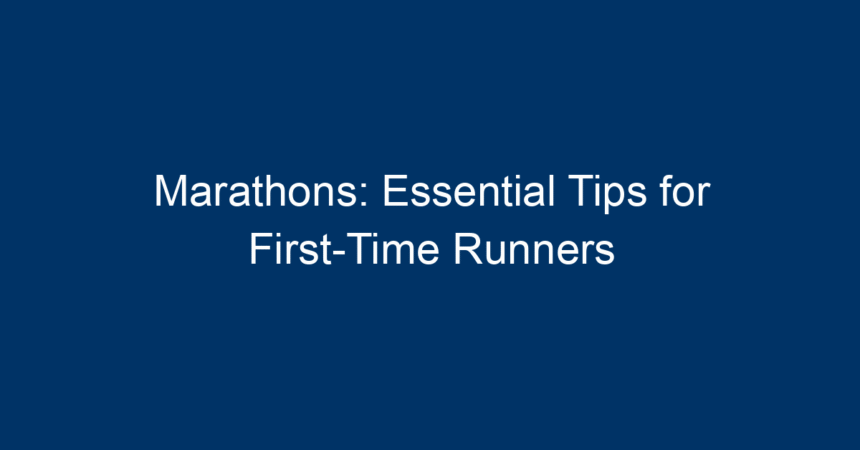Running a marathon is a significant and exhilarating achievement, yet for many first-time runners, it can also be quite daunting. Whether you’re lacing up your shoes for a local 5K or preparing for a full 26.2-mile marathon, it’s essential to equip yourself with the right knowledge and mindset. This comprehensive guide will walk you through essential tips and tricks to ensure your first marathon experience is not only successful but also enjoyable.
Understanding the Marathon
What is a Marathon?
A marathon is a long-distance running event that covers 26.2 miles (42.195 kilometers). The distance itself is more than just a test of physical endurance; it’s a journey that requires mental fortitude and logistical planning. Established in modern times, the marathon traces its roots back to the legendary run of Pheidippides, a Greek soldier who ran from the battlefield of Marathon to Athens to deliver news of victory.
Why Run a Marathon?
The reasons for running a marathon can vary widely from person to person. For some, it’s a personal challenge, while for others, it’s a goal to achieve a fitness milestone or even raise money for charity. Whatever your motivation, the experience of training for and completing a marathon can be life-changing.
Preparing for Your First Marathon
Set Realistic Goals
Before you dive headfirst into marathon training, it’s crucial to set realistic goals. Ask yourself what you hope to gain from this experience. Is your primary aim to finish the race, achieve a specific time, or simply enjoy the journey?
Setting SMART (Specific, Measurable, Achievable, Relevant, Time-bound) goals can guide your training and keep you motivated. For example, if you’re new to running, a realistic goal may be to complete your marathon in under five hours.
Choose the Right Training Plan
Selecting a training plan that suits your current fitness level and time availability is paramount. Most marathon training plans range from 12 to 20 weeks. Traditional plans may include running three to five times a week, focusing on different types of runs: long runs, tempo runs, and interval training.
Consider utilizing one of the many online resources or apps that offer customizable training plans specifically designed for first-time marathon runners.
Invest in Quality Gear
Having the right gear can make a world of difference in your training and race day performance. Here’s what you’ll need:
- Running Shoes: Visit a specialty running store to get fitted for the right pair. Your shoes should offer comfort and proper support.
- Apparel: Invest in moisture-wicking clothing. Avoid cotton, as it absorbs sweat and can cause chafing.
- Hydration Gear: Consider carrying a handheld water bottle or a hydration pack during your long runs to simulate race conditions.
Nutrition and Hydration
Fueling your body correctly is vital when training for a marathon. Focus on a diet rich in carbohydrates, lean proteins, and healthy fats. Your body will need the energy to sustain longer workouts.
Pre-Run Nutrition
- Carbohydrates: Stock up on whole grains, fruits, and vegetables.
- Hydrate: Drink plenty of water leading up to your training runs.
Post-Run Recovery
- Replenish Your Energy: Within 30 minutes of finishing a run, consume a mix of carbs and protein to help muscle recovery.
Training for Your First Marathon
Build Up Gradually
One of the most critical aspects of marathon training is incremental progression. Increase your mileage gradually, adhering to the 10% rule—never increase your weekly mileage by more than 10% to avoid injury.
Incorporate Cross-Training
Integrating cross-training activities, such as cycling, swimming, or strength training, can improve overall fitness and reduce the risk of injury. These activities build endurance without putting too much strain on your joints.
Long Runs are Key
Long runs are a staple of marathon training, serving to increase your stamina and prepare you mentally for race day. Gradually increase your long run distance each week, ensuring you peak at approximately 20 miles a few weeks before the race.
Listen to Your Body
Pay attention to what your body is telling you. If you experience persistent pain or discomfort, consider taking a break or modifying your training plan. Ignoring symptoms can lead to serious injuries that might derail your marathon journey.
Race Day Preparation
Tapering
In the final weeks leading up to your marathon, start tapering your training. Gradually reduce your mileage to allow your body to recover and store energy for race day. A well-planned taper can make a significant difference in your performance.
What to Expect on Race Day
Race day can be filled with excitement and jitters. Here are some key points to keep in mind:
- Arrive Early: Give yourself plenty of time to find your corral, use the restroom, and warm-up.
- Stick to Your Routine: Follow your usual pre-run breakfast and hydration routine.
- Pace Yourself: Start slower than your target pace to avoid burning out too soon. Use the first few miles to settle in.
Mindset Matters
Marathon running is as much a mental challenge as it is a physical one. Visualization techniques can help you remain focused. Picture crossing the finish line successfully, and use positive affirmations to discourage self-doubt during tough moments.
Post-Marathon Recovery
Celebrate Your Achievement
Running your first marathon is an incredible accomplishment. Celebrate it! Whether it’s a small gathering with friends or a personal treat, take time to acknowledge your hard work.
Recovery is Crucial
Post-race recovery involves more than just resting. Focus on:
- Rehydration: Replenish lost fluids, with an emphasis on electrolytes.
- Gentle Stretching: Ease sore muscles with light stretching and yoga.
- Rest Days: Allow your body adequate recovery time before jumping back into training.
Conclusion: Your Marathon Awaits
Completing a marathon is one of the most rewarding experiences a runner can undertake. Armed with these essential tips, you have the tools to not only survive your first marathon but to thrive in it.
Remember, every step you take is a step toward your goal. Embrace the journey, stay committed, and savor the unique experiences that come with running marathons. With dedication and preparation, race day will not just be about crossing the finish line, but about celebrating your hard work and determination.
Now, lace up those shoes and get ready for the adventure of a lifetime!




